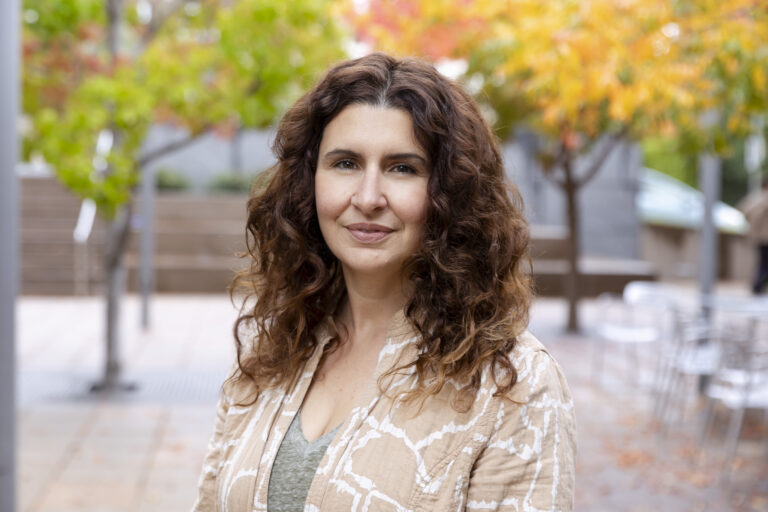“Punitive” Policies Target the Homeless in Wake of High Court Ruling
A new report from UC Berkeley Law’s student-led Homelessness Service Project (HSP) analyzes the impact of a crackdown on California’s unhoused population since the U.S. Supreme Court’s Grants Pass v. Johnson decision last summer.
After the nation’s highest court upheld laws targeting unhoused people with criminal penalties even when there is no place for them to seek shelter, the study shows a surge in anti-camping laws around the state — with least three counties and 50 cities across California passing new rules — a broad use of expanded definitions of “camping” paired with escalated penalties, and a crackdown on people living in vehicles.
The report also highlights the disconnect between how California leaders talk about working with unhoused people and how law enforcement and the courts deal with the issue on the ground. An appendix includes a searchable reference sheet documenting new, existing, and proposed laws and enforcement actions.

“Though state leadership has emphasized ‘urgency and humanity,’ the policies implemented in response to Grants Pass have largely privileged enforcement of punitive laws over support,” the report says. “Despite the stated intent to connect unhoused residents with services, this report documents the expansion of ordinances that penalize survival and deepen legal vulnerability.”
HSP Co-Director Johanna Richter ’26 says the team of 14 students spent months tracking updates to municipal ordinances and monitoring the media for reports about the addition and enforcement of policies targeted at unhoused people, recording those changes in an internal database used to generate the report.
“Prior to the Grants Pass decision in 2024, Ninth Circuit precedent offered a layer of protection for unhoused people against the attempts of municipalities to criminalize homelessness,” she says. “We wanted to help advocates and policymakers understand how municipalities changed policy in light of Grants Pass and the impact that will have on our unhoused community members.”
HSP is one of UC Berkeley Law’s Student-Initiated Legal Services Projects, part of the school’s Pro Bono Program. Students can get involved as early as their first semester of law school and are supervised by outside attorneys.
‘A seismic shift’
Richter and fellow Co-Director Jiun Jeong ’26 were approached about doing the study by Assistant Dean for Clinical Education Laura Riley — an expert on homelessness policy and the author of Homeless Advocacy. She supervised the study, which also got extensive help from Instructional and Educational Technology Librarian Kristie Chamorro.
“After the Grants Pass ruling advocates predicted that jurisdictions would increase criminalization of homelessness and, as a result, increase the harm unhoused people experience,” Riley says. “Very quickly after the decision we started to see new ordinances criminalizing homelessness and knew there would be great value in monitoring and documenting the legal responses to the Supreme Court decision. The 14 students who worked on this project researched almost 400 municipalities across all 58 counties in California.

“They thought through the data and created a report with key findings, compelling narratives, and formulated recommendations.”
Jeong says the Supreme Court’s decision “felt like a seismic shift” just weeks after he’d committed to co-leading HSP for the coming academic year. Shortly afterward, California Gov. Gavin Newsom issued an order directing state agencies to clear homeless encampments.
“That moment made it clear to me that something big was happening, especially in California, where — unlike in New York — most jurisdictions don’t guarantee a right to housing,” Jeong says.
When Riley proposed drafting a memo to the American Bar Association’s Commission on Homelessness and Poverty, given the group’s mission and ongoing work, “it felt like a natural fit,” Jeong adds. “We knew we had to step up, especially as legal shifts were rapidly changing the landscape for unhoused Californians.”
The first step for the students was to build a spreadsheet with all 58 California counties to track which had adopted or proposed laws aimed at unhoused people. With Chamorro’s help, they learned to use new research tools to navigate city and county records — most of them decentralized and not searchable.
“It was challenging because new developments were happening constantly, but we gathered enough data to start noticing real patterns,” Jeong says.
The group switched from research to writing in the second semester, grouping the results into the various enforcement mechanisms they found and divvying up the task of expanding each section with additional information.
Jeong was surprised by both the speed of the changes and the strategies at work.
“Local governments moved incredibly fast after Grants Pass, but what struck me even more was how subtle many of the changes looked on paper. Rather than passing entirely new laws, a lot of jurisdictions amended existing ones — expanding definitions of “camping” to include something as basic as sleeping in public, or applying it to people living in vehicles. Penalties also increased, sometimes quietly,” he says. “What was especially concerning was the way many cities framed these changes. Instead of naming them as responses to Grants Pass or acknowledging the housing crisis, they’d often cite public health or environmental concerns. But as we saw during our research for the HSP report, those tweaks in language — though they might seem minor — have huge implications.
“They can end up impacting thousands of unhoused people, and I found that really alarming.”
Richter knew from previous reports by UC Berkeley Law’s Policy Advocacy Clinic that there were hundreds of anti-homeless laws on the books in California, so the findings were aligned with her expectations. But she hopes the report can expose “the misalignment between state and local officials’ repeated commitments to a compassionate response to homelessness and the punitive policies many continue to enact and enforce.”
“Part of this misalignment seems to stem from some local officials who are primarily concerned with eliminating the visible presence of encampments and unhoused people in their cities, rather than addressing the policy failures that force people to live outside because they have nowhere else to go,” she adds. “California’s extreme housing affordability crisis is the direct result of policy failures at every level of government and remains a primary driver of homelessness. While the Newsom administration’s efforts to increase housing supply are laudable, these actions can and must be pursued without punishing people in poverty for trying to survive.”
Face-to-face experience
Both leaders joined HSP because of their own experience living in areas with unhoused populations: Richter in “every city I’ve ever lived in” and Jeong because of his six years living in UC Berkeley housing when his father was a Ph.D. student.
“Even back then, I remember noticing the visibility of homelessness in the area — and sadly, returning for law school, it felt like the situation had only worsened,” he says. “I wanted to understand why, especially as California continues to invest so heavily in homelessness policy.”
Their work with the HSP, which includes direct services as well as legal and policy advocacy with The Suitcase/Women’s Clinic and the Homeless Action Center, has been both fulfilling and alarming.
To that end, the study makes a number of policy recommendations, most centered on curbing California’s critical shortage of housing.
“Without enough shelter beds or permanent housing, enforcement becomes the default,” Jeong says. “And then there’s just fragmentation — 58 counties, hundreds of cities, all responding in different ways. So even if the state sets a tone of compassion, there’s no mechanism to ensure consistency.
“That’s what made our research at HSP feel so urgent. We wanted to document this moment and show how that gap between rhetoric and reality is playing out across California.”
At a high level, Richter adds, policies to reduce homelessness should be focused on the structural failures that cause people to be unhoused, rather than using the carceral system to punish those most hurt by those shortcomings and undermine their ability to escape poverty. That means expanding access to affordable housing, offering direct financial assistance to families at risk of homelessness, and increasing access to healthcare, substance abuse treatment, and mental health treatment for low-income people.
She also worries that Newsom’s administration has created the wrong incentives for local governments. State officials have threatened to withhold funding from local governments that do not show “demonstrable results” on homelessness, and recently launched a website that displays, among other things, the number of unhoused residents per locality. The administration has also instructed cities to adopt a model ordinance that forces unhoused people living outside to relocate every 72 hours.
“Justice Sotomayor’s dissent in Grants Pass noted that cities use criminalization to drive unhoused people out of their jurisdictions, and I worry this practice will become widespread in California,” Richter says. “If the easiest way for a local government to reduce the number of unhoused residents and visible encampments they are held responsible for is to coerce those residents to relocate out of the area or incarcerate them, municipalities have a clear incentive to pursue this strategy rather than actually providing services to people who desperately need them.
“Aside from the unconscionability of inflicting that amount of cruelty on unhoused people, incarceration and forced displacement also make it even more difficult for unhoused people to access the stability and resources they need to become housed. The outcome variable the administration should monitor and condition funding on is whether unhoused people are experiencing tangible improvement in their living conditions.”
Almost a year on from Grants Pass, the students and Riley hope the study can inspire change in the Golden State.
“I am so impressed by the professionalism, thoroughness, and dedication that the leaders and members of the Homelessness Service Project showed in publishing this report,” Riley says. “I know it will be a valuable resource in the fight for rights of unhoused people in our California communities.”
